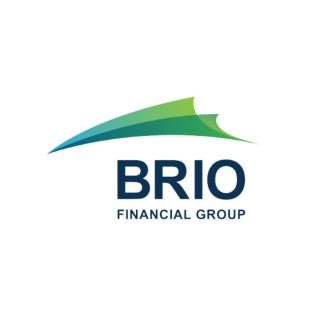
How to Keep Taxes from Distorting Retirement Horizons
by Brandon Miller on Dec 22, 2021
Every Waymo that passes makes me wonder when self-driving cars will become a reality. And what will they look like? If we won’t have accidents, will cars need bumpers, seat belts, and airbags? What about mirrors? Will “objects in mirror are closer than they appear” no longer have meaning?
Even without convex mirrors distorting our perception, plenty of other illusions stand ready to trip us up. Take retirement account balances, for example. It feels great watching the numbers go up in your IRA and 401(k), 403(b) or other tax-deferred account, especially when the stock market surged during the pandemic, making it easier to feel comfortable about a comfortable retirement.
But that big, beautiful number on your statement doesn’t reflect your giant IOU to Uncle Sam. A million-dollar balance might only be worth $700k by the time you pay your tax bill. So, unlike the aforementioned mirror, your retirement horizon may be farther away than it appears.
Before you complain about that tax bill, remember that this is the bargain you made with the IRS when you opened your account. In exchange for faster growth potential from an upfront tax break and paying no taxes on gains when they are earned, you agreed to pay taxes at the going rate when you withdrew the money.
“Going rate” is the sticking point here. You may think you’ll be in a lower tax bracket when you retire, but honestly, most people don’t want to lower their living standards if they can afford not to. Plus, who knows what Congress will do with tax rates in the future?
Despair not. We still have Roth accounts—one of my favorite financial planning tools. Unlike retirement accounts funded with money you haven’t yet paid taxes on, Roth accounts force you to pay the taxes upfront. Why would you do that? Let me count the ways.
The biggest reason is that Uncle Sam doesn’t ask for more once you’ve paid the initial tax bill. Gains earned in Roth accounts are tax free. Put another way, every dime shown in your Roth balance belongs to you.
Another Roth advantage is controlling taxable income. That’s important because the IRS forces you to begin taking money out of traditional retirement accounts at age 72. Required Minimum Distributions (RMDs) are based on your account balance and make you chip away at your IOU to Uncle Sam. The higher your balance, the more you’re required to withdraw.
Withdrawals are considered taxable income—the very thing that drives the amount of taxes you pay on Social Security income, and what you owe for Medicare services. Depending on the amount of your RMD, you could go from owing less than $150 a month to paying over $500 a month for Medicare Part B (based on 2021 rates). That alone is a good reason to get a handle on your taxable income.
Roth benefits are easy to gain through contributions and conversions. Contributions are fairly painless as you pay taxes before money goes into the Roth account. Each $100 deposited may only show up as $70 now, but tax-free growth can make up the deficit quickly.
Conversions can feel a bit more like waxing, where you hate doing it but love the results. Paying your tax bill upfront—all at once or spread over a period of years—guarantees the amount you’ll pay for taxes and lets you know down to the penny how much you have for retirement.
To bring this into focus, let’s say that you have a million in cash accounts and a million in a traditional IRA. Converting the IRA to a Roth account could result in a $300K tax bill. Pay this bill from your cash accounts and the full $1m in your Roth account can continue to grow—tax-free, I emphasize yet again. Yes, you have $300k less in cash. But your tax bill, which would have continued to grow with your traditional IRA account balance, no longer exists. This is financial planning’s ultimate short-term pain, long-term gain win.
So, to recap: tax-free growth offers control over taxable income and peace of mind. Need I say more about the beauty of Roth, or the value of seeing your true net worth without distortion? That’s something not even Waymo’s fleet of camera-outfitted cars can capture.
Brio does not provide tax or legal advice, and nothing contained in these materials should be taken as such. The opinions expressed in this article are for general informational purposes only and are not intended to provide specific advice or recommendations for any individual or on any specific security. It is only intended to provide education about the financial industry. To determine which investments may be appropriate for you, consult your financial advisor prior to investing. Any past performance discussed during this program is no guarantee of future results. Any indices referenced for comparison are unmanaged and cannot be invested into directly. As always please remember investing involves risk and possible loss of principal capital; please seek advice from a licensed professional.
Brio Financial Group is a registered investment adviser. SEC Registration does not constitute an endorsement of Brio by the SEC nor does it indicate that Brio has attained a particular level of skill or ability. Advisory services are only offered to clients or prospective clients where Brio Financial Group and its representatives are properly licensed or exempt from licensure. No advice may be rendered by Brio Financial Group unless a client service agreement is in place.
